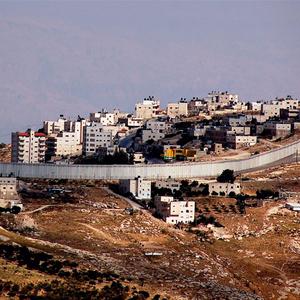Connecting the Bullets: Guns on the Kitchen Table to Organized Crime to Crimes Against Humanity
In this episode of Occupied Thoughts, FMEP's Sarah Anne Minkin speaks with attorney and activist Meisa Irshaid, activist and author Rela Mazali, and Professor Jonathan Metzl about the proliferation of guns in civilian spaces in Israel/Palestine. They discuss the the acceleration of organized crime and gun violence in Palestinian communities inside of '48 Israel, the mass armament of Jewish Israeli citizens, mostly men, on both sides of the Green Line, spearheaded by National Security Minister Itamar Ben Gvir, and the links between militarization, occupation, and crimes against humanity.
Meisa Irshaid is an attorney and an activist, legal advisor to the NGO Gun Free Kitchen Tables, board member at the Human Rights Defenders Fund and former attorney in the Public Committee Against Torture-Israel. A Palestinian citizen of Israel, Meisa is also co-founder of the group Women Against Weapons, focusing on fact finding among Palestinians in Israel combining perspectives on gender and ethnicity.
Rela Mazali is a writer, independent scholar and feminist anti-militarist who co-founded Gun Free Kitchen Tables, where she now serves as the coalition coordinator. Rela was born Jewish in Israel, where she has lived most of her life, which–as she sees it–places her in a position of privilege, that she has resisted since 1980 by actively opposing Israel’s militarization and military occupation, co-founding the New Profile movement to demilitarize society and state in 1998 and the small arms disarmament and gun control project, the Gun Free Kitchen Tables Coalition, in 2010.
Dr. Jonathan Metzl is a psychiatrist and sociologist, and Frederick B. Rentschler II Professor of Sociology and Psychiatry, and the director of the Department of Medicine, Health, and Society, at Vanderbilt University in Nashville, Tennessee. Jonathan works on a wide range of issues, including mental illness and gun violence and race and whiteness in America. He is the author of many books, most recently What We’ve Become: Living and Dying in a Country of Arms.
Sarah Anne Minkin, PhD, is FMEP’s Director of Programs & Partnerships. She leads FMEP’s programming, works to deepen FMEP’s relationships with existing and potential grantees, and builds relationships with new partners in the philanthropic community.
Original music by Jalal Yaquoub.
17 December 2024, 2:08 am
